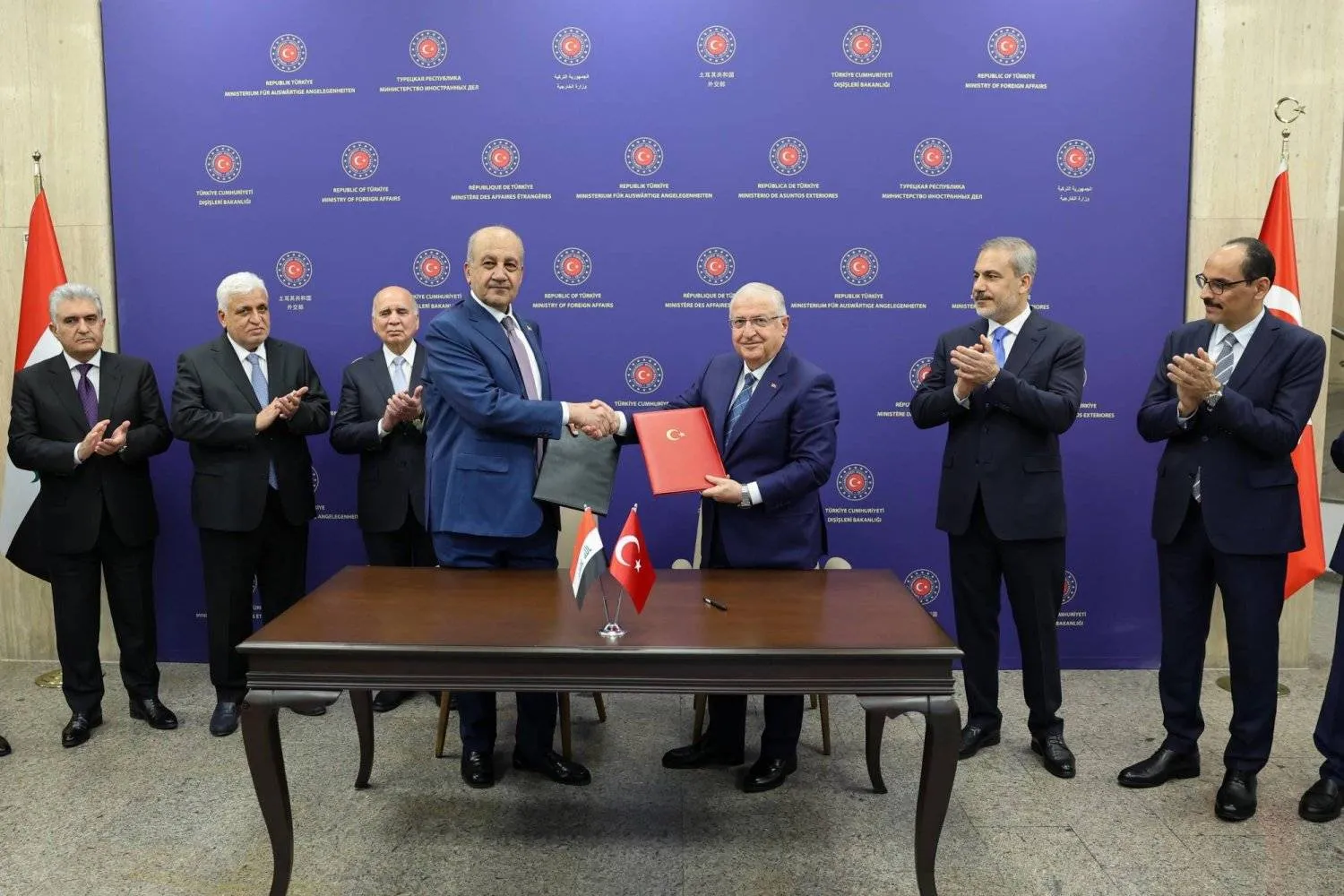Türkiye has stressed that the memorandum of understanding on military and security cooperation and counter-terrorism signed with Iraq does not include any provision regarding the termination of Turkish military presence on Iraqi soil.
The Center for Combating Disinformation, affiliated with the Directorate of Communications at the Turkish Presidency, denied media reports that the MoU signed by Turkish Defense Minister Yasar Güler and Iraqi Defense Minister Thabet Muhammad al-Abbasi, aims to end the presence of Turkish military forces in Iraqi territory.
In a statement on Thursday, the center said that such reports are entirely incorrect and that there is no such clause in the MoU concerning military and security coordination and counter-terrorism signed between Ankara and Baghdad.
The statement added that under the memorandum of understanding, the two countries will establish a joint security coordination center in Baghdad and a joint training and cooperation center in Bashiqa.
“These centers will enable the elimination of threats posed by terrorist organizations to the sovereignty of both countries and their internal and regional security,” it noted.
The statement added that Türkiye’s war against terrorism “will continue resolutely, both domestically and beyond its borders,” and urged not to rely on claims from external sources but to consider only official statements.
In the same context, a Turkish Defense Ministry official confirmed that the text of the MoU circulating in some media is “not accurate” and differs from the text signed by the defense ministers of the two countries.
In a press briefing on Thursday, the military official stated that according to the MoU, the two parties will provide military training, law enforcement, counter-terrorism measures, joint border security, and the fight against illegal immigration and border infiltration.
He added that a joint security coordination center will be established in Baghdad, which will be jointly managed by a general appointed by both Iraq and Türkiye.
At the conclusion of the first meetings of the Joint Planning Committee and the fourth meeting of the High-Level Security Mechanism, held in Ankara on Aug. 15, the two countries confirmed their desire to strengthen their relations in various fields, with a focus on security coordination and combating terrorist organizations.
This came in accordance with the memorandum of understanding on military and security cooperation and counter-terrorism, which aims to end the threat posed by the Kurdistan Workers’ Party (PKK).









